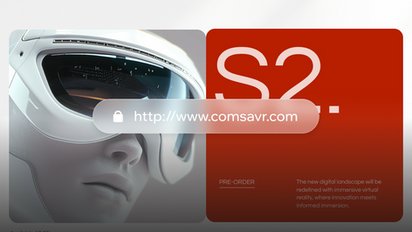How to Courses on Web Design
Courses on Web Design in 3 Steps
Courses on Web Design
Cooking and baking are not only enjoyable activities, but they can also be a great way to express creativity and share delicious food with others. If you run a food blog or website, building recipes is a crucial part of your content creation. Whether you are a seasoned chef or a home cook, creating enticing and unique recipes can help you attract more visitors to your website and keep them coming back for more. Here are some tips on how to build recipes on your website that will impress your audience and keep them engaged.

Courses on Web Design Challenges
Courses on Web Design
As search engines like Google continue to prioritize high-quality, relevant content in their search results, businesses that invest in content marketing SEO are more likely to see success in their online marketing efforts. By creating content that is optimized for specific keywords and provides value to their target audience, businesses can increase their visibility in search engine results pages (SERPs) and attract more potential customers to their websites.
Here are some key tips for effectively implementing content marketing SEO strategies:
1. Conduct keyword research: Before creating any content, it’s important to conduct thorough keyword research to identify the most relevant and high-traffic keywords for your industry. By targeting the right keywords in your content, you can improve your chances of ranking higher in search results and attracting more organic traffic to your website.
2. Create high-quality, engaging content: Content marketing SEO is not just about stuffing keywords into your content – it’s about creating valuable, engaging content that provides value to your target audience. By creating content that addresses the needs and interests of your audience, you can increase engagement, build trust, and improve your chances of ranking higher in search results.
3. Optimize your content for SEO: Once you’ve created your content, it’s important to optimize it for search engines. This includes optimizing your title tags, meta descriptions, headers, and image alt text with relevant keywords, as well as incorporating internal and external links to other relevant pages on your website.
4. Focus on quality over quantity: While it’s important to consistently produce new content for your website, quality should always take precedence over quantity. By focusing on creating high-quality, relevant content that provides value to your audience, you can improve your chances of ranking higher in search results and attracting more organic traffic to your website.
5. Monitor and analyze your results: Lastly, it’s important to regularly monitor and analyze the performance of your content marketing SEO efforts. By tracking key metrics such as organic traffic, keyword rankings, and engagement rates, you can identify what’s working well and make adjustments to your strategy as needed.
Fortunately, there are numerous website builders available that cater specifically to small businesses, offering easy-to-use tools and templates to help you create a beautiful and functional website in no time. In this article, we’ll explore some of the best small business website builders currently on the market.
1. Wix
Wix is one of the most popular website builders for small businesses, thanks to its drag-and-drop interface and customizable templates. With Wix, you can choose from hundreds of professionally designed templates and easily customize them to fit your brand. The platform also offers a variety of tools and features, such as e-commerce capabilities, social media integration, and SEO optimization.
One of the standout features of Wix is its App Market, which allows you to add additional functionality to your website, such as online booking, email marketing, and live chat support. Additionally, Wix provides reliable hosting services and 24/7 customer support to ensure that your website is always up and running smoothly.
2. Squarespace
Squarespace is another popular website builder known for its sleek and modern designs. The platform offers a range of beautifully designed templates that are fully customizable, allowing you to create a professional-looking website without any coding skills. Squarespace also provides integrated e-commerce capabilities, making it easy to set up an online store and accept payments.
In addition to its design flexibility, Squarespace offers robust analytics tools to help you track your website’s performance and optimize your marketing efforts. The platform also provides reliable hosting services and 24/7 customer support to ensure that your website is always accessible to your customers.
3. Weebly
Weebly is a user-friendly website builder that is perfect for small businesses looking to create a simple and functional website. The platform offers a drag-and-drop interface that makes it easy to design your site, as well as a variety of templates to choose from. Weebly also offers e-commerce capabilities, allowing you to set up an online store and accept payments through various payment processors.
One of the standout features of Weebly is its mobile app, which allows you to manage your website on the go and track your site’s performance in real-time. The platform also provides reliable hosting services and customer support to ensure that your website is always up and running smoothly.
4. Shopify
Shopify is a popular e-commerce platform that is perfect for small businesses looking to sell products online. The platform offers a variety of customizable templates and tools to help you create a beautiful and functional online store. Shopify also provides integrated payment processing, inventory management, and shipping options to streamline the e-commerce process.
In addition to its e-commerce capabilities, Shopify offers a range of marketing tools to help you drive traffic to your online store and increase sales. The platform also provides reliable hosting services and 24/7 customer support to ensure that your online store is always accessible to your customers.
5. WordPress
WordPress is a flexible and customizable website builder that is perfect for small businesses looking to create a unique and personalized website. The platform offers thousands of themes and plugins to help you design your site, as well as e-commerce capabilities through the WooCommerce plugin. WordPress also provides SEO optimization tools to help you improve your website’s visibility in search engine results.
One of the standout features of WordPress is its open-source nature, which allows you to fully customize your website and add any functionality you need. The platform also provides reliable hosting services and a strong community of developers and users to help you troubleshoot any issues you may encounter.

How to Master Courses on Web Design
Courses on Web Design
In conclusion, designing a website layout template is a crucial step in creating a successful website. By considering factors such as the overall structure of the site, the placement of elements, the use of white space, and the responsive nature of the design, you can create a layout that is visually appealing, easy to navigate, and user-friendly. Experiment with different layouts and elements to find the one that works best for your site, and don’t be afraid to make changes as needed. With a well-designed layout, you can create a website that engages users and keeps them coming back for more.

